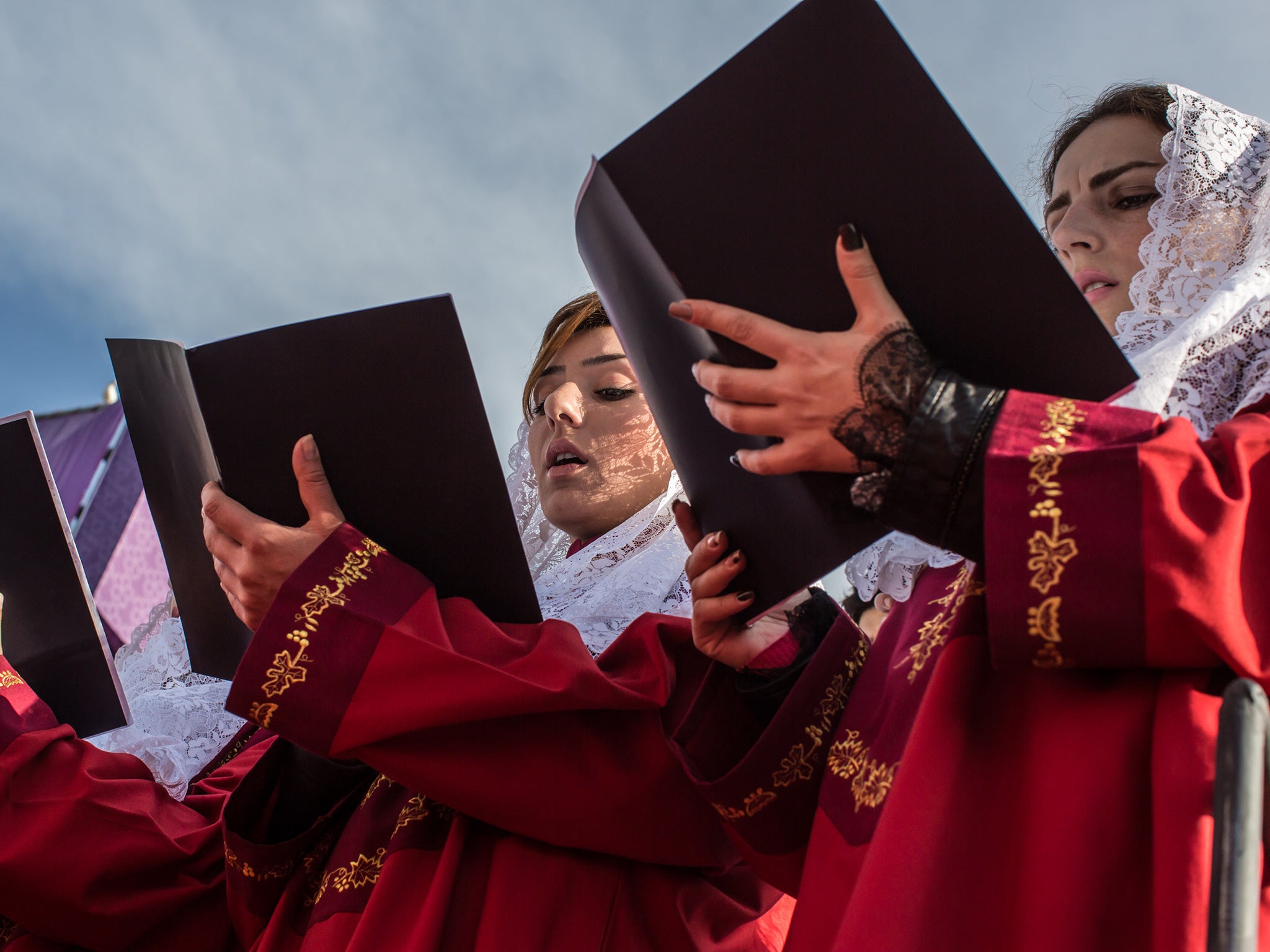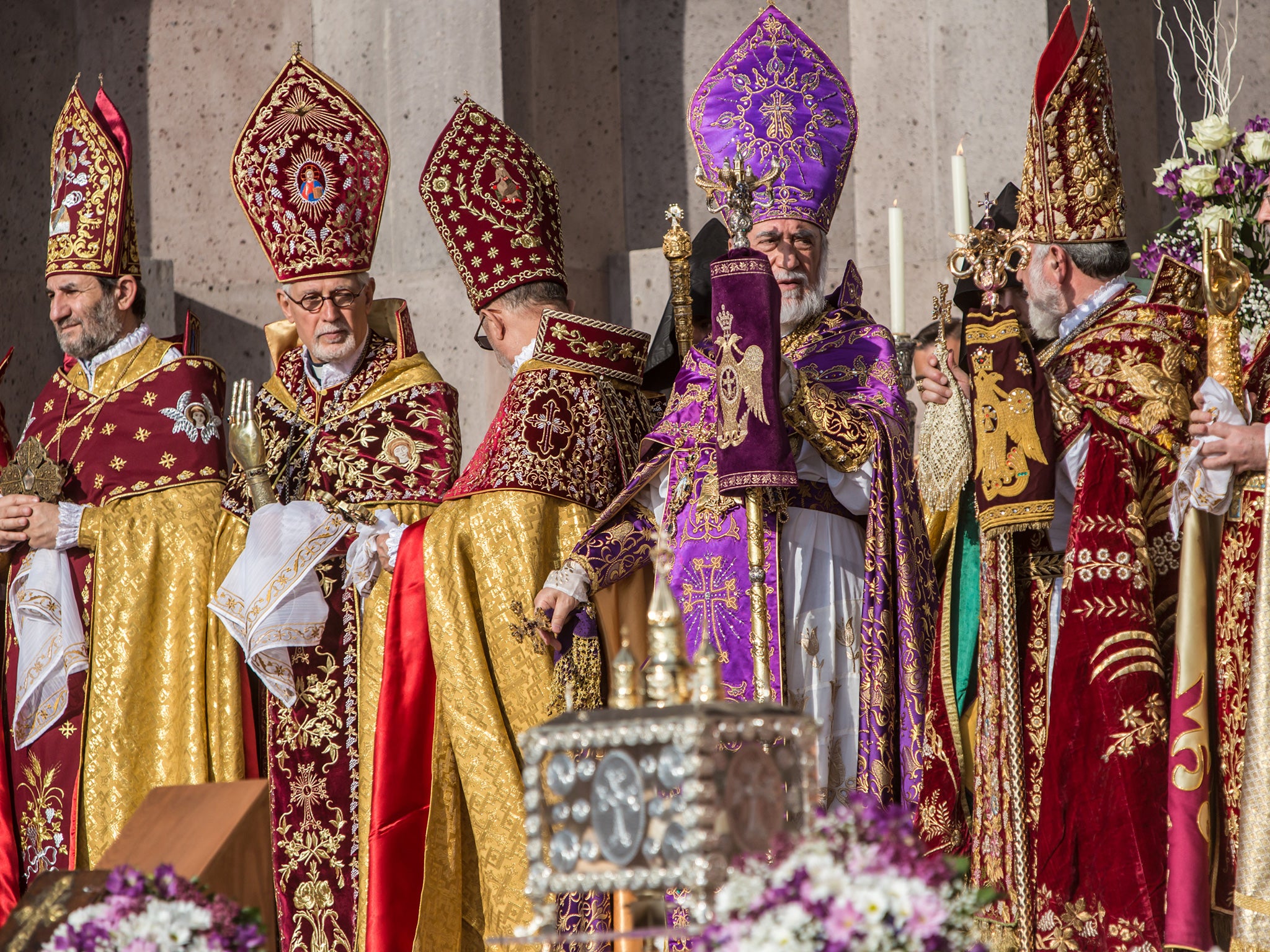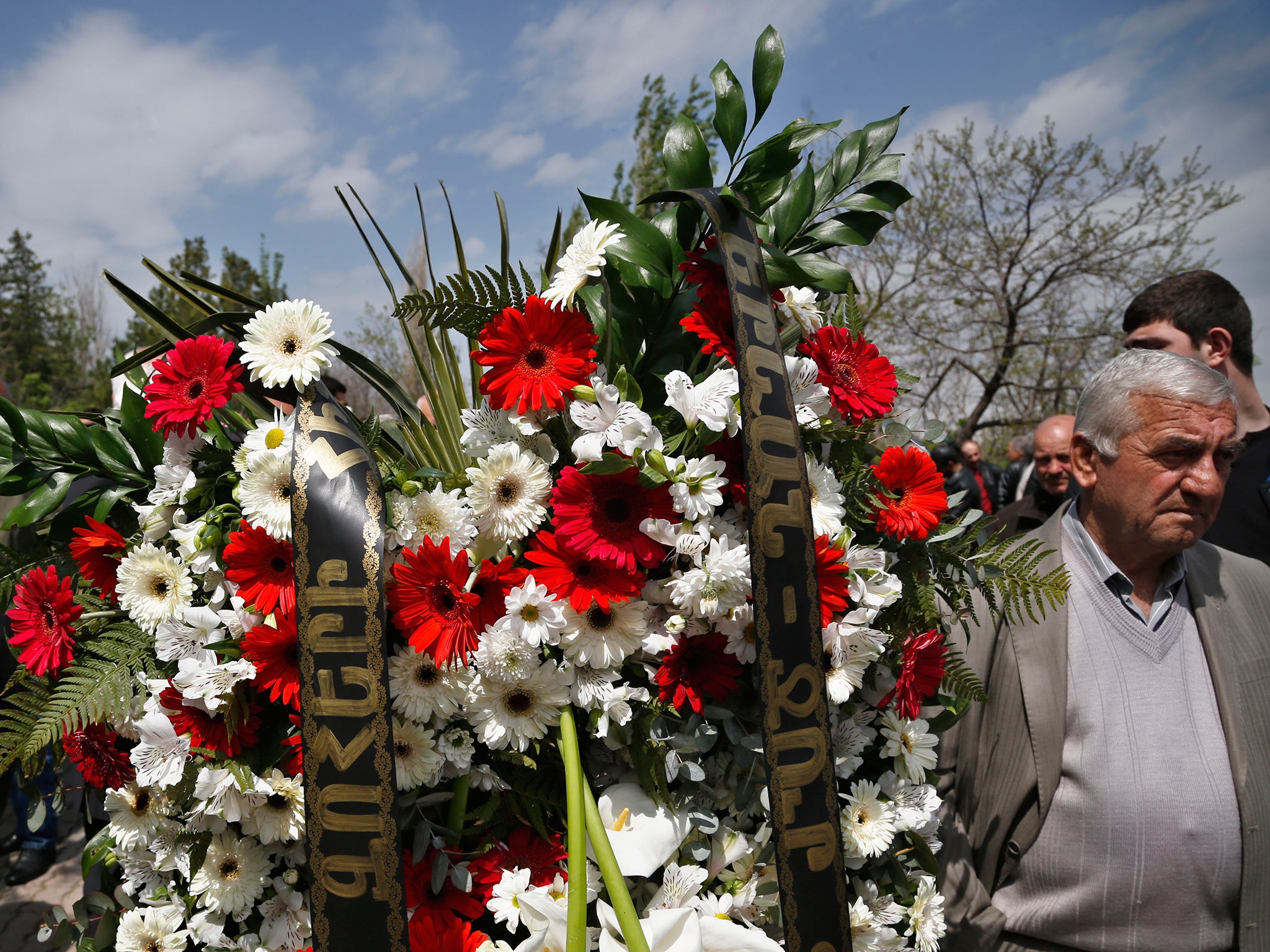Armenia genocide victims canonised on centenary of atrocity that Turkey still refuses to recognise
Turkish President Erdogan said: 'We will not allow historical incidents to be taken out of context and be used as a tool to campaign against our country'

Your support helps us to tell the story
This election is still a dead heat, according to most polls. In a fight with such wafer-thin margins, we need reporters on the ground talking to the people Trump and Harris are courting. Your support allows us to keep sending journalists to the story.
The Independent is trusted by 27 million Americans from across the entire political spectrum every month. Unlike many other quality news outlets, we choose not to lock you out of our reporting and analysis with paywalls. But quality journalism must still be paid for.
Help us keep bring these critical stories to light. Your support makes all the difference.
In Echmiadzin, the sounds of ringing bells and chanting filled the air. A hundred years ago, the town, 13 miles west of Armenian capital, Yerevan, became a sanctuary for Armenian refugees fleeing the massacres of the Ottoman Empire.
After walking hundreds of miles, thousands of emaciated families finally reached safe ground only for many to succumb to cholera and other diseases and die in the shadow of a turreted stone cathedral.
The town is host to the Mother See of Holy Echmiadzin, the headquarters of Armenian Apostolic Church. The church had not canonised anyone for more than 400 years, until now, when there was a collective elevation to sainthood of the approximately 1.5 million Armenian victims of the genocide.
A service presided over by Supreme Patriarch of the Armenian Church, Karekin II, swathed in ornate purple robes, was watched by crowds of thousands and beamed onto giant screens as he spoke of the sanctification of the “blood of martyrdom” and the “spiritual rebirth” of Armenians.

Tigran Kapoyan, a Syrian-Armenian writer born in Aleppo, was watching the spectacle. His ancestors escaped from Diyarbakir, now a major Kurdish city in Southeastern Turkey. “We are deeply insulted that Turkey does not recognise the genocide. When I went to Diyarbakir to see the land of my ancestors, Kurdish people told me: ‘This is your land, you should come back. It is too tragic, too painful’,” he said.
He recalled how his great grandmother, though only a child, was forced to bury her sister with her bare hands. “When I drove through Diyarbakir by night, all of these stories came to my mind and it’s a very heavy feeling,” he said.
Armenian communities in Syria and Iraq are currently being targeted by Isis and many have fled to seek refuge in Armenia. A fierce debate continues to rage over Turkey’s refusal to accept the widely held view that the mass killings of Armenians constituted a genocide, despite the harrowing testimony of survivors forcibly marched into the Syrian deserts who witnessed atrocities committed against men, women and children.
So far, 24 countries officially recognise the events as a genocide with the USA, UK and Israel notably abstaining. Many governments fear speaking out on the issue to avoid offending Turkey, a Nato member and key geostrategic ally in the war on the self-proclaimed “Islamic State” (Isis).

Britain was represented by Tory grandee John Whittingdale, the Bishop of London and the Ambassador to Armenia, Kathy Leach, at the canonisation.
London is sending a much larger delegation to Turkey, including Princes Charles and Harry, to mark the centennial since the Battle of Gallipoli which resulted in one of the bloodiest defeats for the Allied forces in World War One.
Turkish President Tayyip Erdogan has been accused of cynically moving the event, usually held on Saturday, a day forward to overshadow Armenia’s commemoration.
Germany’s president described the mass killings as genocide, marking a shift in his country’s stance after officials previously avoided the term.
President Joachim Gauck said it is clear today that “the fate of the Armenians is exemplary for the history of mass destruction, ethnic cleansing, expulsions and genocides which marks the 20th century in such a terrible way”.
Germany’s parliament will debate a motion using the same words today.
Gauck also made more direct, reference to “the genocide against the Armenians”.
Last week, Pope Francis endorsed the description of the killings as a genocide, prompting President Erdogan to furiously lash out, remarking in a speech: “We will not allow historical incidents to be taken out of their genuine context and be used as a tool to campaign against our country.”
Turkey’s public-relations headache also intensified last week following a visit to Armenia by reality TV star Kim Kardashian, a fourth generation Armenian-American whose ancestors relocated to California having fled Ottoman persecution in the late-19th century to California.
Her huge social media following allowed millions to become both aware of the genocide, and of Armenia – a tiny landlocked nation of three million in the South Caucasus bordering Turkey and Iran – which barely ever makes the news.
“This is a trauma. But at the same time it gives you energy; it sounds strange to say but it makes you feel stronger,” said Mr Kapoyan. “This is a renaissance. We survived.”
Subscribe to Independent Premium to bookmark this article
Want to bookmark your favourite articles and stories to read or reference later? Start your Independent Premium subscription today.
Join our commenting forum
Join thought-provoking conversations, follow other Independent readers and see their replies
Comments